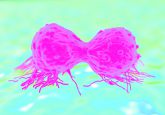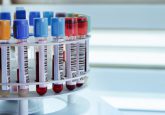Unique biomarker discovered for cancer diagnosis
Researchers at the University of Queensland (Australia) have discovered a unique biomarker common to multiple cancers that has the potential to change the way early stage cancer is diagnosed. The simple test to detect cancer from blood or biopsy tissue could result in a new approach to patient diagnosis in the future.
In the study, recently published in Nature Communications, researchers discovered a unique DNA nanostructure that appears to be common for all cancers. This may come as a breakthrough for cancer diagnosis, which is generally extremely complicated and variable with different types of cancer possessing different signatures.
“This unique nano-scaled DNA signature appeared in every type of breast cancer we examined, and in other forms of cancer including prostate, colorectal and lymphoma,” explained Abu Sina, University of Queensland. “The levels and patterns of tiny molecules called methyl groups that decorate DNA are altered dramatically by cancer – these methyl groups are key for cells to control which genes are turned on and off.”
The team found that intense clusters of methyl groups placed in a solution caused cancer DNA fragments to fold into unique 3D nanostructures that could easily be separated by sticking to solid surfaces such as gold. This led to the development of a tool that could look at the pattern changes at the whole genome level within minutes using gold nanoparticles that instantly change color in the presence of the 3D nanostructures of cancer DNA.
“Discovering that cancerous DNA molecules formed entirely different 3D nanostructures from normal circulating DNA was a breakthrough that has enabled an entirely new approach to detect cancer non-invasively in any tissue type including blood,” commented Matt Trau, University of Queensland. “This led to the creation of inexpensive and portable detection devices that could eventually be used as a diagnostic tool, possibly with a mobile phone.”
The new technology has proved to be up to 90% accurate for 200 human cancer samples and normal DNA in clinical trials. The researchers are now in collaboration with UniQuest (Queensland, Australia) to develop the technology further and license with a commercial partner.
Trau concluded: “We certainly don’t know yet whether it’s the Holy Grail for all cancer diagnostics, but it looks really interesting as an incredibly simple universal marker of cancer, and as an accessible and inexpensive technology that doesn’t require complicated lab-based equipment like DNA sequencing.”
Sources: Sina AAI, Carrascosa LG, Liang Z et al. Epigenetically reprogrammed methylation landscape drives the DNA self-assembly and serves as a universal cancer biomarker. Nat. Commun. 9(4915), (2018); www.uq.edu.au/news/article/2018/12/nano-signature-discovery-could-revolutionise-cancer-diagnosis




